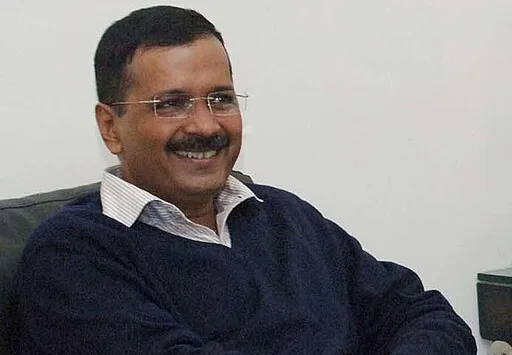The Supreme Court emphasizes the right to liberty while referring Kejriwal’s plea against his arrest to a larger bench for further consideration
On July 12, 2024, Delhi Chief Minister Arvind Kejriwal received interim bail from the Supreme Court in a high-profile money laundering case linked to the controversial Delhi Excise policy. This decision comes after Kejriwal had spent over 90 days in custody, a duration that the bench, led by Justice Sanjiv Khanna, deemed excessive, reinforcing the importance of personal liberty.
The proceedings unfolded in a packed courtroom where tensions were palpable. Justice Khanna, alongside Justice Dipankar Datta, highlighted the need to address the fundamental rights at stake in this case. The bench recognized that the matter raised significant legal questions deserving of scrutiny by a larger panel of judges.
Embed from Getty ImagesAs the hearing progressed, Additional Solicitor General (ASG) S.V. Raju presented the government’s case, asserting that evidence indicated money had flowed to the Aam Aadmi Party (AAP) via hawala channels. He revealed that investigators had uncovered communications between Kejriwal and hawala operators discussing alleged proceeds of crime.
However, the defence, represented by senior advocate Abhishek Manu Singhvi, strongly refuted these claims. Singhvi argued that the evidence cited by the Enforcement Directorate (ED) was not available at the time of Kejriwal’s arrest, challenging the validity of the claims against his client.
The backdrop of this legal drama includes a previous ruling by the Delhi High Court, which had upheld Kejriwal’s arrest, citing sufficient evidence such as testimonies from approvers and indications of cash transactions related to the 2022 Goa elections. Although a trial court had initially granted bail on June 20, the High Court later stayed this release, citing a lack of opportunity for the ED to present its case effectively.
As the day progressed, the ED revealed in its seventh supplementary chargesheet that Kejriwal was allegedly the “kingpin” and “key conspirator” in what it described as the 2021-22 excise policy “scam.” This designation escalated the stakes for the AAP leader, who now faces intense scrutiny from both legal and political realms.
The Supreme Court’s decision marks a critical juncture in the ongoing legal battles surrounding Kejriwal and the AAP. As the court continues to navigate the complexities of this case, many eyes remain fixed on how it will influence the political landscape and public perception of accountability and governance in India.
Analysis:
Political Perspective:
The Supreme Court’s decision to grant interim bail to Kejriwal raises crucial questions about the intersection of law and politics in India. This ruling may shift the narrative surrounding the AAP, which has positioned itself as a champion of transparency and anti-corruption. Political opponents could leverage this situation to question Kejriwal’s integrity, while his supporters may see the court’s decision as a vindication of his leadership.
Moreover, the referral to a larger bench highlights the ongoing struggle between state institutions and political figures. It underscores the need for clear legal frameworks to address allegations against public officials, especially in politically charged cases. The implications of this case extend beyond Kejriwal, potentially setting precedents for how similar cases are handled in the future.
Social Perspective:
The case has ignited a broader societal debate regarding the integrity of political leaders and the mechanisms of accountability in governance. As citizens observe the legal proceedings, discussions around corruption, transparency, and the role of law enforcement in political affairs have intensified. This event serves as a reminder of the challenges faced in balancing the pursuit of justice with the rights of individuals in power.
The public’s reaction to Kejriwal’s arrest and subsequent bail will likely influence perceptions of the AAP and its governance model. The outcome may either bolster the party’s claims of victimization by central agencies or further erode public trust in political institutions.
Racial Perspective:
While the case primarily focuses on political and legal issues, it also intersects with discussions on race and representation in Indian politics. The AAP, with its emphasis on grassroots activism, appeals to a diverse electorate. The unfolding events may spark discussions on whether systemic biases affect how political leaders from various backgrounds are treated by law enforcement agencies.
Gender Perspective:
The handling of this case also presents an opportunity to reflect on gender dynamics within Indian politics. As male leaders often dominate the narrative in political scandals, it’s vital to consider how gender perceptions influence public responses to leaders facing allegations. Ensuring that the discourse includes diverse voices can help in understanding the broader implications of such cases on female representation in politics.
Economic Perspective:
The allegations tied to the Delhi Excise policy raise significant economic questions. The case implicates not only political figures but also the economic implications of corruption in policy-making. Public trust in economic governance can be severely impacted by perceptions of corruption, influencing investment and economic stability. The outcome of this case could signal to investors and citizens alike the seriousness with which India addresses corruption, shaping economic policies and practices in the long run.
